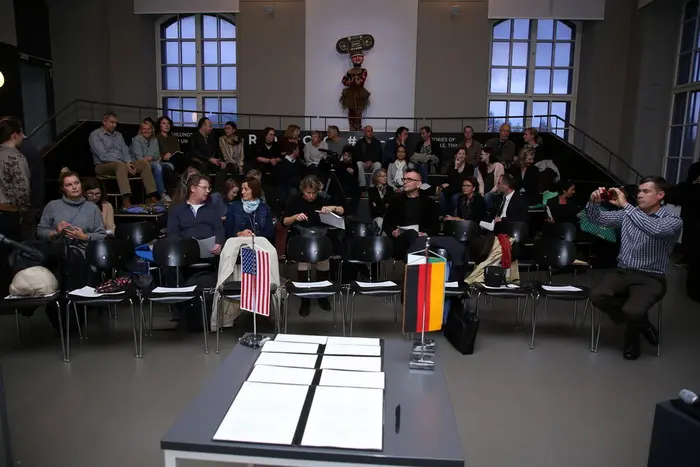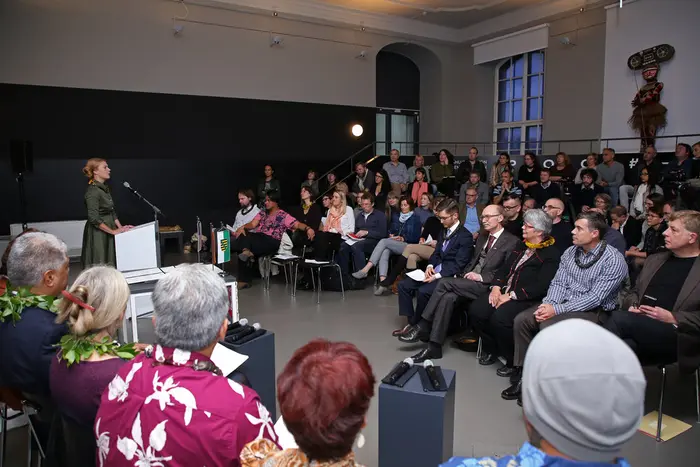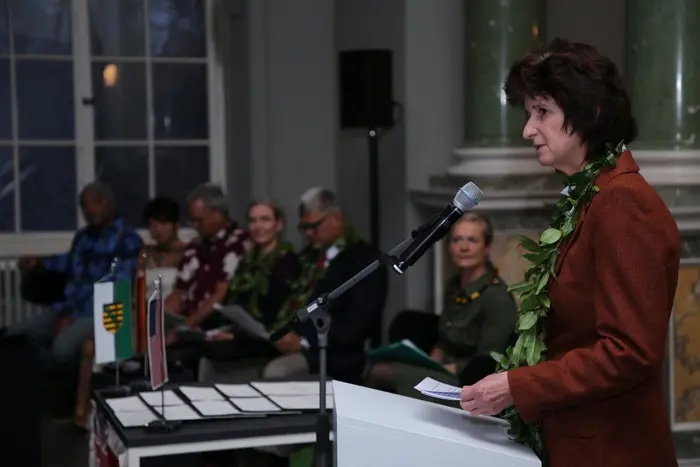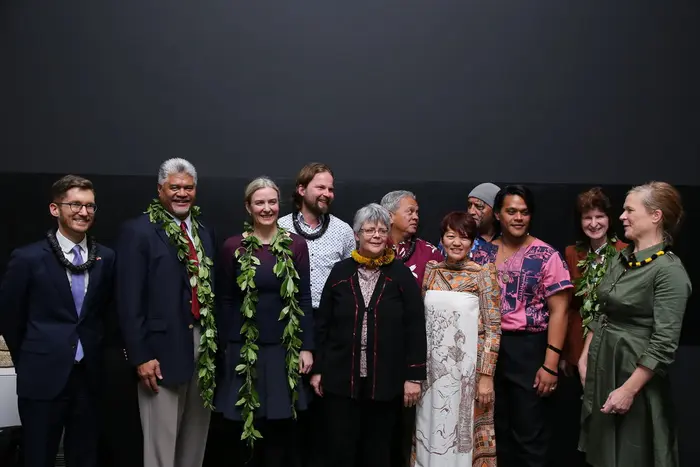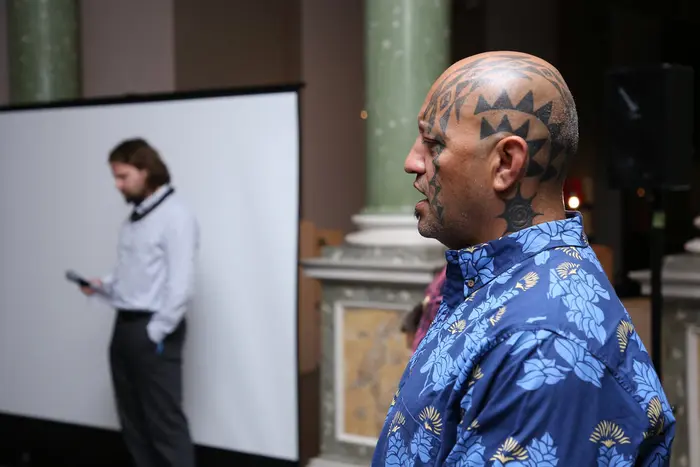[Translate to English:] Werkstatt Prolog
aboutwho are you?to whom did you belong?whispering boxesbehind the scenesmaji maji: war?restitutionstrange?we?creditsprolog Dresden
[Translate to English:] header

restitution
The three museums for ethnology in Saxony – the GRASSI Museum für Völkerkunde zu Leipzig, Museum für Völkerkunde Dresden and the Völkerkundemuseum Herrnhut, which have been part of the Museum Association of the Staatliche Kunstsammlungen Dresden since 2010, have preserved numerous human remains. Several thousand are part of the so-called “Anthropological Collection,“ which is now housed in the Museum für Völkerkunde Dresden. This collection is the legacy of the colonial era and was based on the racial theories of the 19th and early 20th centuries as well as on the introduction of new positivist research methods such as craniometry with the aim of obtaining comparative data on humanity.
The proponents of the science of anthropology, which was still in its infancy, believed that cultural differences between people could be traced back to biological causes. They amassed extensive collections of bones to have sufficient research and comparative material at their disposal. Collectors and adventurers were commissioned to purchase non-European “research material” – as it was then called – and send it to museums and universities in Germany. Grave plundering and violent contexts in which human remains were acquired at that time are now the subjects of fierce criticism.
text 2
we're talking here about human beings
Since the beginning of the 1990s, government agencies, as well as representatives and organizations of various indigenous groups, have submitted restitution requests to the Museum für Völkerkunde Dresden, the GRASSI Museum für Völkerkunde zu Leipzig and, since 2010, to the Staatliche Kunstsammlungen Dresden.
On 23 October 2017, the Free State of Saxony returned mortal remains to representatives of the country of origin for the first time. The human remains from Hawai'i were looted from their burial caves between 1896 and 1902. Between 1896 and 1904, they were sold and donated to the Royal Zoological and Anthropological Ethnographic Museum, the predecessor of the Museum für Völkerkunde Dresden founded in 1945.
The repositories of the three Saxon ethnological museums still contain many human remains. In addition to Hawai'i, New Zealand, Australia and Namibia have also applied to the Free State of Saxony for restitution.
The official handover took place on 23 October 2017 at the exhibition Prolog #1-10 Stories of People, Things and Places at the Museum für Völkerkunde Dresden in the Japanische Palais in Dresden.
